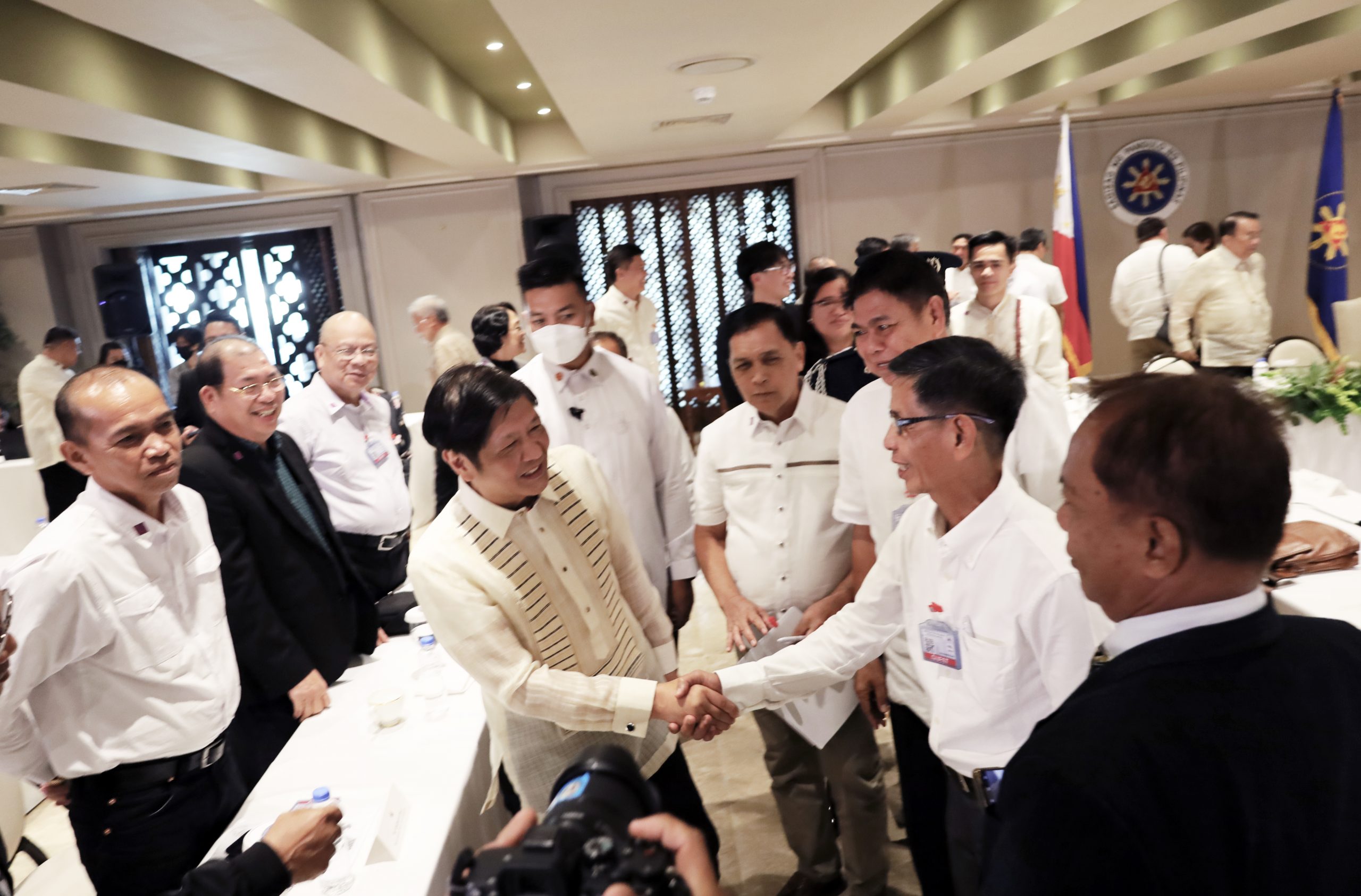
For the first time, President Ferdinand Marcos Jr. met with the Philippine Council for Agriculture and Fisheries (PCAF) National Sectoral Committees (NSCs) and the Regional Agricultural and Fishery Councils (RAFCs) to address various pressing concerns that affect the agriculture and fishery sector at the Heroes Hall in Malacañang Palace on July 10, 2023.
The dialogue was part of Senior Undersecretary Domingo Panganiban’s commitment last May 25 to the NSCs and the AFCs to relay their concerns to the President, who also serves as the Department of Agriculture (DA) Secretary.
This was participated in by 15 RAFC Chairpersons representing each region, 19 NSC Chairpersons and representatives, PCAF, DA and other concerned agencies and Departments.
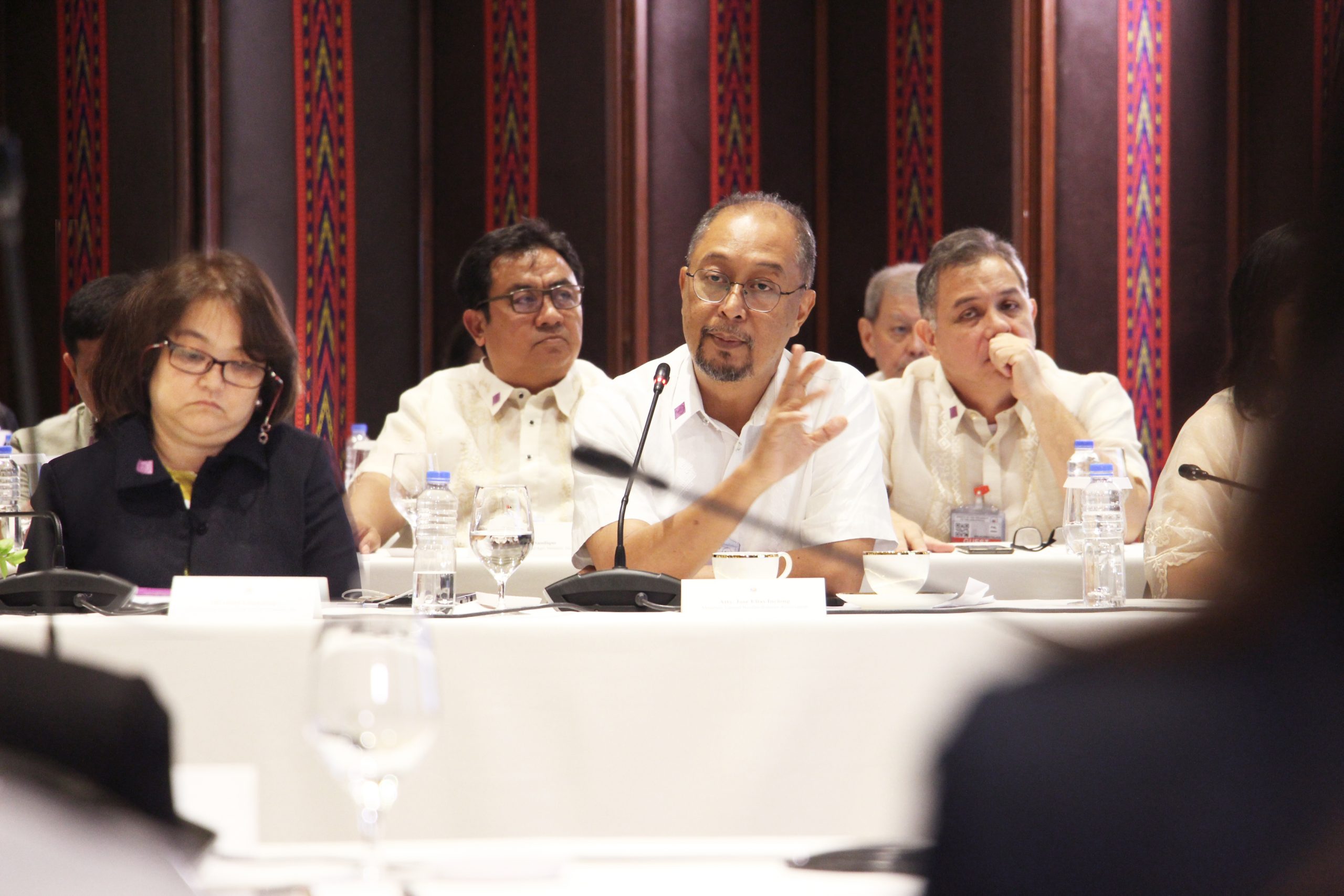
The President gave directives and comments on the 10 identified issues and concerns discussed by the National Sectoral Committee (NSC) on Poultry and Livestock representative, Atty. Jose Elias “Bong” Inciong and the Regional Agricultural and Fishery Council (RAFC) Central Luzon Chairperson, Engr. Francisco Hernandez.
“I am happy na pareho tayo ng mga naiisip (na recommendations). It is good that we agree in terms of priorities. The best minds are here in coming up with the best solutions,” said the President upon hearing the issues and concerns, and the private sector’s recommendations.
The NSCs and the RAFCs included in the shortened list of issues and concerns the impending water scarcity come the El Niño season that would not only affect the households but also the agriculture sector.
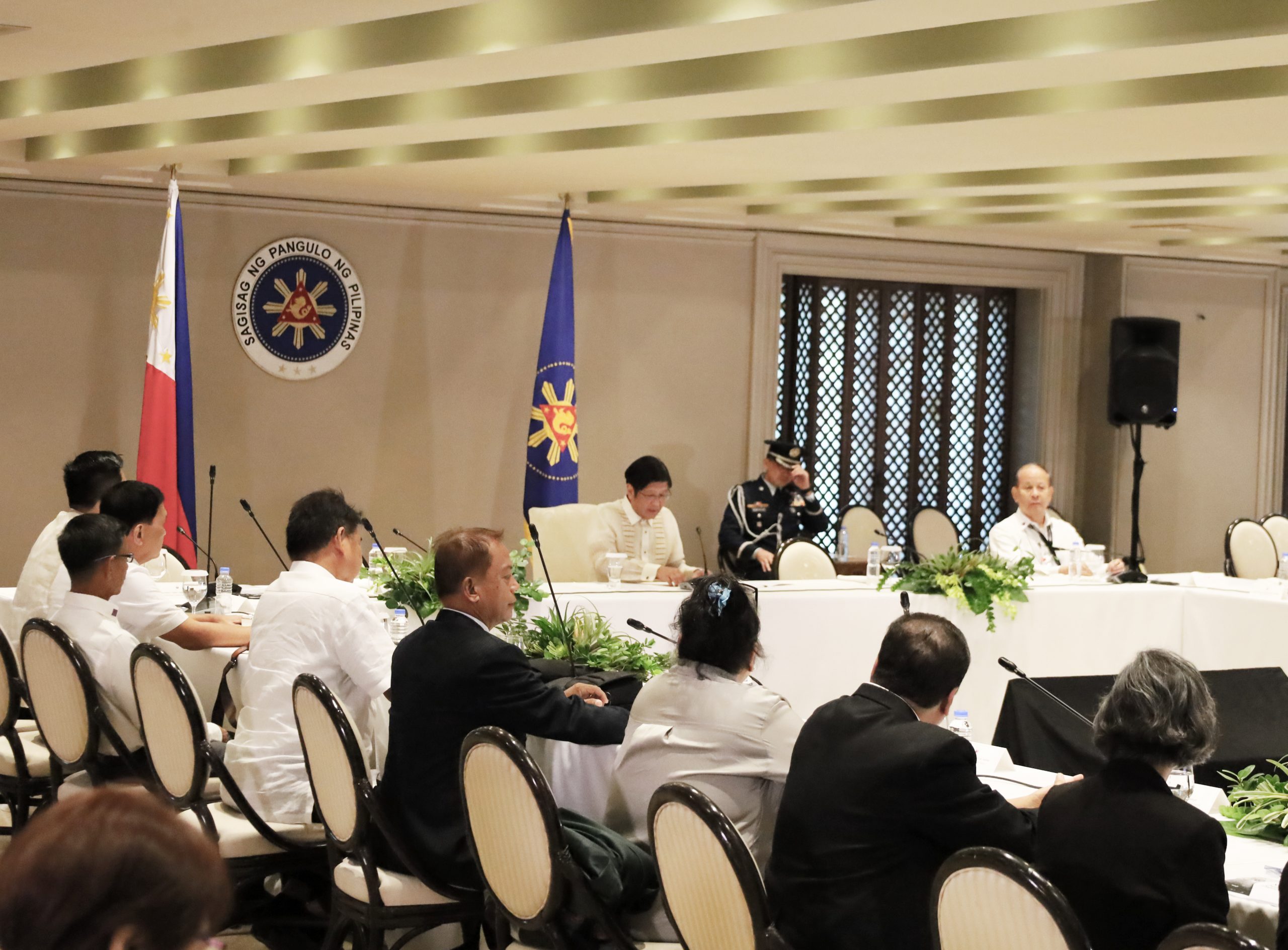
The President mentioned that the DA, through the National Irrigation Administration, has been working with the newly created Water Resources Management Office (WRMO) of the Department of Environment and Natural Resources on the creation of a contingency plan to address the effects of El Niño. Marcos said that he is expecting the recommendation from WRMO within the week.
On the other hand, both NSCs and RAFCs raised the request for additional funding for cold storage facilities.
A list of cold storage facilities in six areas will be provided by the Bureau of Fisheries and Aquatic Resources (BFAR). These will not only ensure proper recording of catch but also to prevent or minimize spoilage.
“Aside from cold storage, rehabilitation of hatcheries and other aquaculture facilities shall be undertaken. Once the basics are done, BFAR will explore and go full blast on mariculture. It is quite ironic that the Philippines, an archipelagic country with over 7,100 islands, is importing fish and fishery products,” he added.
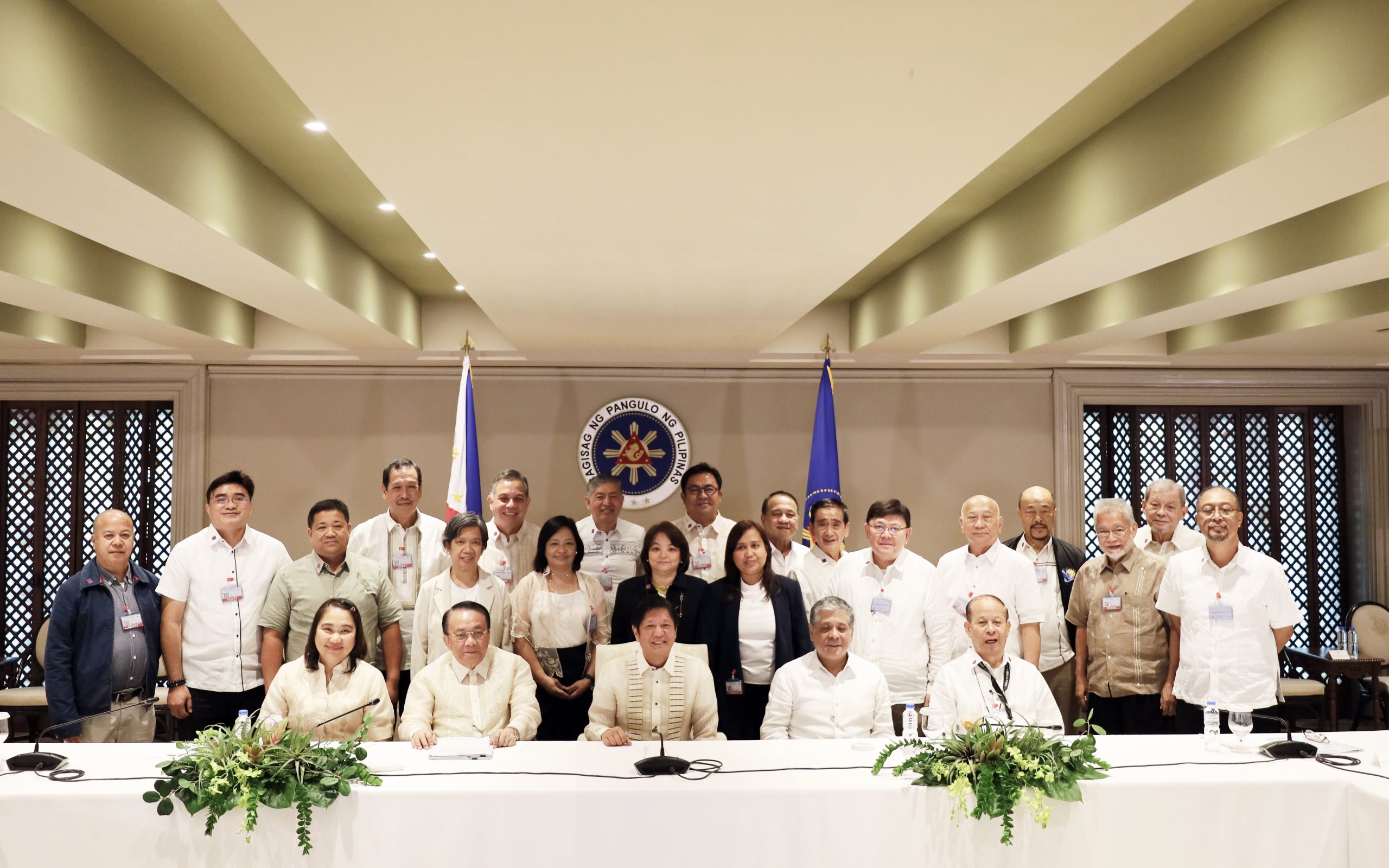
On the issue of smuggling, he mentioned that the immediate solution is to run after smugglers, and file a case with the Department of Justice and National Bureau of Investigation.
“One critical problem to be resolved by the agencies concerned is the lack of data on smuggled onions, sugar, etc. There are syndicates that control the storage and distribution of these smuggled goods, which the regulatory agencies should put a stop to such illegal activities,” Marcos added.
He also added that the Bureau of Customs shall study the idea of conducting pre-shipment inspection as part of special safeguard measures.
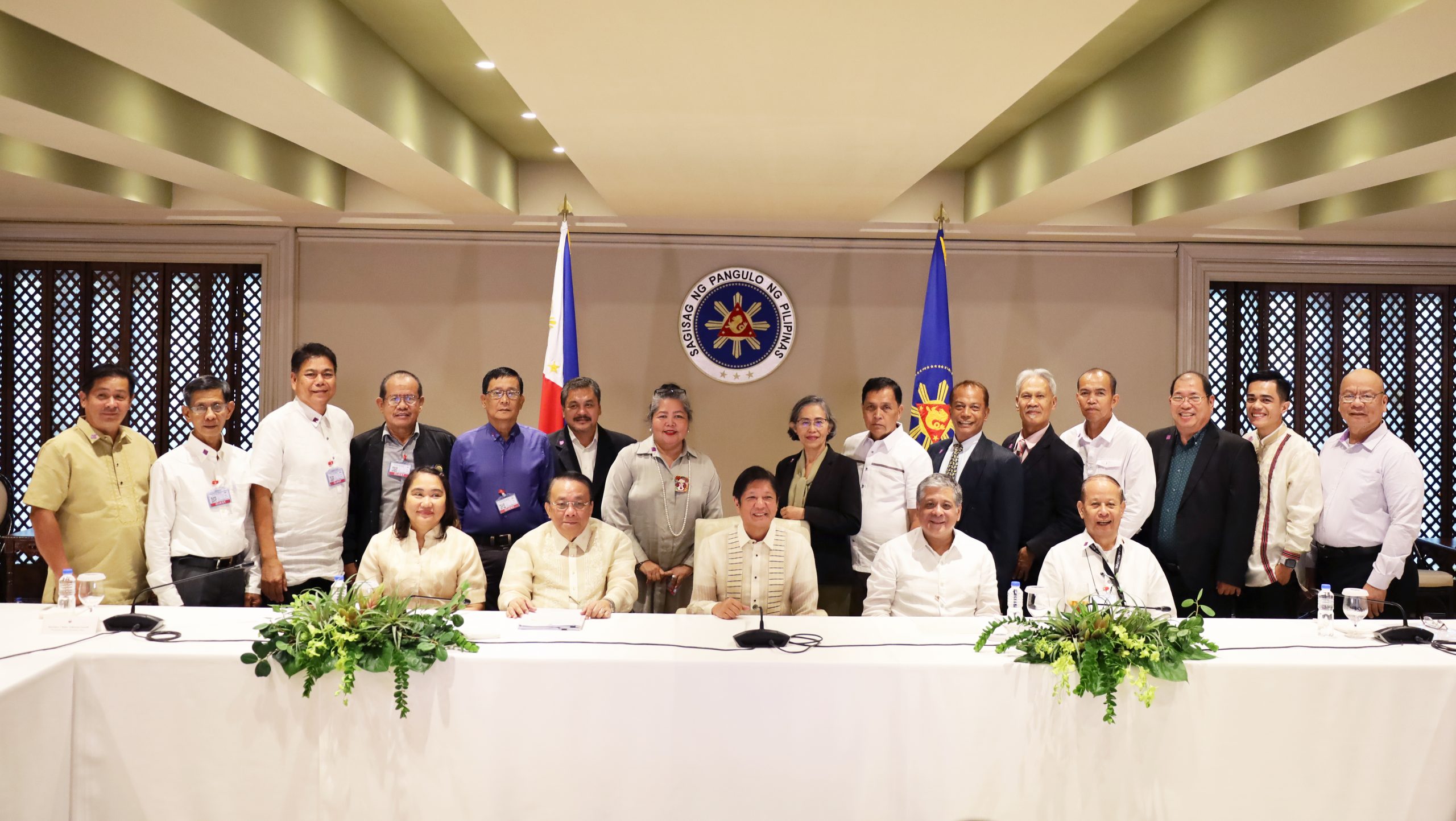
Although he acknowledged the importance of trade policies, particularly the concern on the need to review the Rice Tariffication Law and other Executive Orders that aimed to reduce tariffs and the implementation of trade remedies and safeguard measures, the government needs to review the possibility of bringing back the old mandate of the National Food Authority in regulating the rice sector and rice import shipments into the country.
For the meantime, the NFA shall engage in contract farming and buy produce at an agreed price. This is to ensure availability and stabilize buffer stock for rice.
The private sector also brought to the table the adverse effect on the livelihood and income of abaca farmers when the country shifted from abaca to synthetic polymer in producing peso banknotes. The President approved the recommendation to support abaca producers and look for alternative markets for abaca fiber.
They also raised the concern about the lack of competitiveness of vegetable products due to the high cost of farm inputs like fertilizers and pesticides.
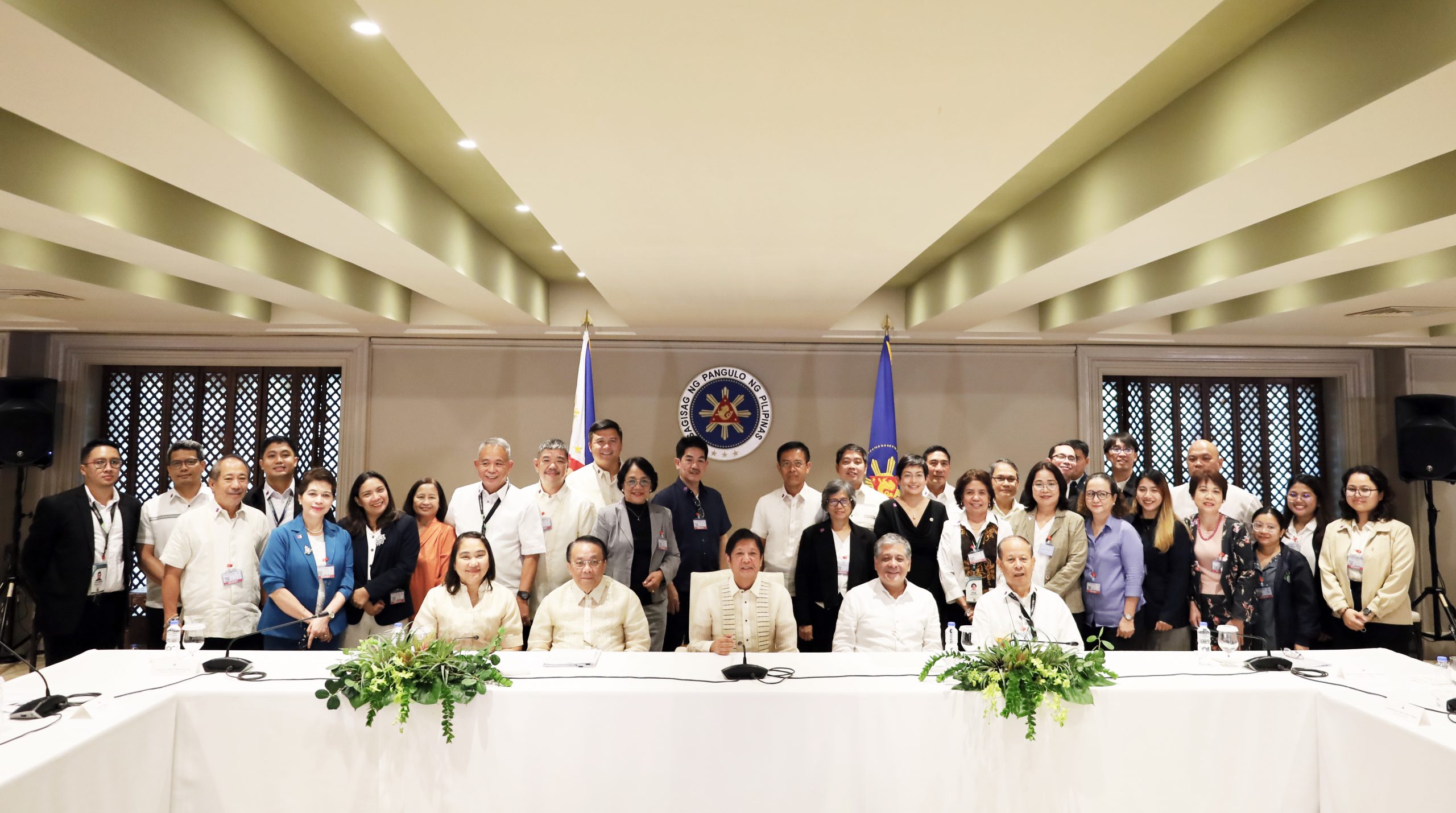
The President responded that the government does not have control over prices of fertilizers because these are affected by such global concerns like geopolitical disputes, worldwide fertilizer shortage, and the pandemic. He also opposed the idea of imposing a Suggested Retail Price on fertilizers because a State of Emergency needs to be declared first.
Regarding the inaccessibility of the Philippine Crop Insurance Corporation (PCIC) to farmers in island municipalities, the President acknowledged that the PCIC would not be able to cover more than 2.2 million hectares of rice agricultural land.
Marcos mentioned that a new insurance system needs to be developed through the Land Bank of the Philippines (LBP) to really serve and provide credit assistance and insurance to the farmers. The President ensured that the LBP will become more active and return to its principal mandate as an agricultural bank. | JC











